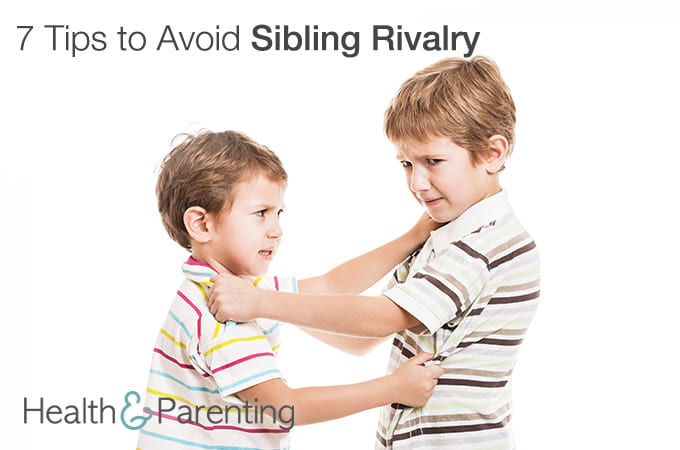If you have any siblings of your own, you’ll know first hand that the sibling relationship is a complex, dynamic roller coaster. It’s a love hate relationship, especially during childhood. Children battle it out for independence, attention and love. You may have noticed just how volatile this relationship can be by observing your own children. From the tender kisses, cuddles and care they show for another one minute, to the shouting, fighting and cruelty they can inflict the next. As a parent, it can be frustrating to watch this relationship unfold. Why can’t they just get along?
Sibling rivalry is a part of life, and there’s not much you can do to prevent it. There are, however, things you can do to minimize the fall out and help your children to heal that oh-so-important relationship. Here are seven tips to cope with sibling rivalry:
- Leave them to it
It’s only natural to want to step in and sort your children’s problems out for them, but it could actually be doing more harm than good. Childhood conflict teaches children important life skills such as problem solving, negotiation and self control. By resolving conflict for your children, you rob them of the opportunity to develop these skills. Try to take a back seat and simple observe how your children reach a peace agreement. If you feel you need to get involved, try asking questions rather than giving orders. You may find they are able to work the problem out themselves with your assistance. If violence is involved, however, you must step in and firmly explain that you will not allow them to hurt each other.
- Give them space
Just as you may sometimes need a little breather from your partner, your kids may occasionally benefit from some time spent apart to cool down. If the argument doesn’t seem to be coming to an end, try separating your children for a short while. Think of fun and engaging activities for each child that will take their minds of the disagreement.
- Avoid blame
Try not to ask who started it, or automatically blame the older child because you think they ‘should know better’. It doesn’t really matter who started it or who said what, what matters is that you can restore peace to your family. Instead of focusing on one child, speak to both children, even if one is a baby. Though the baby may not understand what you’re saying, your older child will understand that they are both being treated equally. Sibling resentment can come from a perceived favoritism, and addressing both children and avoiding blame will help to avoid that.
- One on one
As a parent, your free time is already limited. If you’re trying to juggle work, family and social commitments, you may sometimes feel more than a little burnt out. You might struggle to find the hours, but some quality one on one time with you could be all your children need to feel a little less jealous of each other. It doesn’t have to be much, it could be an uninterrupted bedtime stories session, a trip to the park or a fun craft activity to do at home. Tailor the activity to your child and choose something you know will be a hit. It can be hard to find this time, especially if you have a baby at home, but it will be worth it when you see how much your child enjoys the quality time spent with you.
- Encourage involvement
Until your youngest child is a toddler striving for independence, you could let your older child make some decisions for them. Babies require a lot of attention, and it’s all too common for older siblings to feel left out. Getting your older child involved can help to prevent sibling rivalry, and encourage your older child to bond with the baby. Let your older child pick out which sleep suit the baby should wear, which toy the baby might like to play with in the car and which story you should read at bedtime.
- Avoid comparisons
It’s almost impossible to resist the urge to compare your children. After all, it can be surprising just how different siblings can be. You may compare how often they cried as babies, the age they started walking and, later, their academic achievements. This isn’t nice for your kids to hear, and it sets the example that your children are competing with each other. Avoid comparisons altogether and instead celebrate your children as individuals.
- Remember the good times
It’s never nice to be woken by the sound of world war three breaking out in your house. It can be upsetting to see the two people you love most in the world be so heartless towards each other. You may find yourself wondering what you’ve done wrong. Stop. You haven’t done anything wrong, sibling rivalry is an unavoidable part of life. When they’re fighting, it seems like they always fight, but when they’re loving and kind to each other, you think you’re doing a good job. You are doing a good job. Remember those loving moments and take photos as proof that they exist.
Written by Fiona (@Fiona_Peacock), mother, writer and lover of all things baby related.
This information is not intended to replace the advice of a trained medical doctor. Health & Parenting Ltd disclaims any liability for the decisions you make based on this information, which is provided to you on a general information basis only and not as a substitute for personalized medical advice. All contents copyright © Health & Parenting Ltd 2016. All rights reserved.










